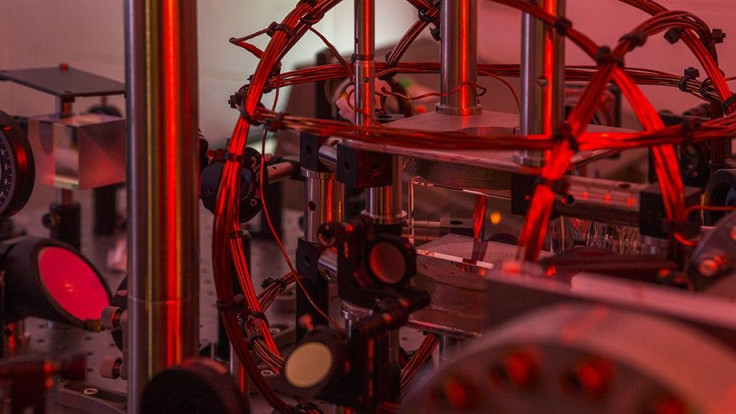Artificial Intelligence Replicates Nobel Prize-Winning Physics Experiment In Less Than An Hour

The world’s first Artificially Intelligent physicist is here, and it has already replicated a Nobel Prize-winning experiment — one that involved creating an ultracold state of matter called Bose-Einstein condensate.
Bose-Einstein condensates — named after physicists Satyendra Nath Bose and Albert Einstein — are a state of matter created when atoms are cooled to a temperature close to absolute zero (0 Kelvin or -459.6 degrees Fahrenheit). At such an ultralow temperature, all atoms gather in the lowest possible energy state, creating a “giant matter wave.”
Although Bose and Einstein predicted the existence of such a state of matter in 1924, scientists were only able to create this extreme state of matter in 1995 through an experiment that won them the Nobel Prize in 2001.
“I didn't expect the machine could learn to do the experiment itself, from scratch, in under an hour,” Paul Wigley from the Australian National University, who used the AI algorithm to re-create the experiment, said in a statement released Monday. “A simple computer program would have taken longer than the age of the universe to run through all the combinations and work this out.”
The team of researchers created an extremely cold gas trapped in a laser beam and then handed over the reins to the AI program. In order to cool the system down to a few nanokelvins (1 nanokelvin is equal to one-billionth of a Kelvin) — the final, and the most delicate, step in the creation of the condensate — the AI would have had to monitor and change different parameters that would allow energetic atoms to escape but prevent colder ones from doing so.
To the researchers' surprise, the algorithm, which was not programmed to have any prior knowledge of the process, not only learnt to perform the experiment successfully in less than an hour, it — as AI systems are wont to do — did so using techniques humans couldn't possibly have thought of.
“It did things a person wouldn't guess, such as changing one laser's power up and down, and compensating with another,” Wigley said. “It may be able to come up with complicated ways humans haven't thought of to get experiments colder and make measurements more precise. ... We plan to employ the artificial intelligence to build an even larger Bose-Einstein condensate faster than we've seen ever before.”
And, as the co-lead researcher Michael Hush pointed out, using the AI is “cheaper than taking a physicist everywhere with you.”
© Copyright IBTimes 2025. All rights reserved.





















